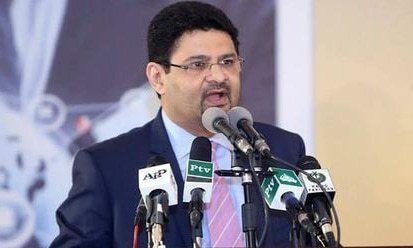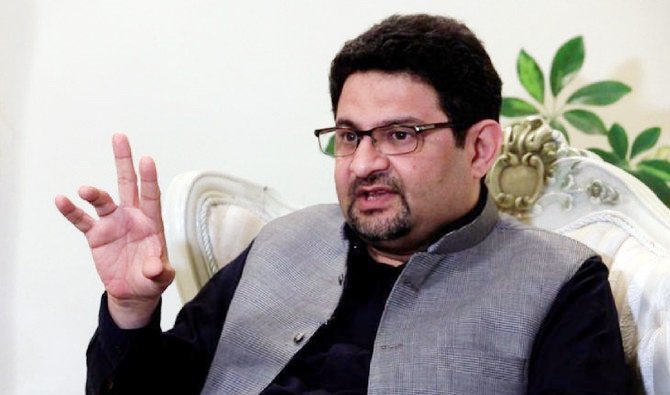During a panel discussion called “Pakistan’s Economy: Depth and Resilience” at Karachi’s Beach Luxury Hotel on the final day of the 14th Karachi Literary Festival, Miftah Ismail, the head of the PML-N and a former finance minister, expressed his regret about Pakistan’s lack of progress.
Other panelists included Muhammad Aurangzeb, the CEO of Habib Bank Limited (HBL), Akbar Zaidi, the executive director of the Institute of Business Administration (IBA) Karachi, and Azfar Ahsan, the chairman of the board of investments.
The moderator of the session was Samiullah Siddiqui.
The experts in economics and finance discussed the country’s future.
Ahsan emphasized the importance of continuity in governance and policies for Pakistan.
He stated:
“Elected governments must be allowed to complete their tenures. This is how we draw in investors.”
Ismail, on the other hand, questioned Ahsan’s viewpoint, pointing out that Ziaul Haq and Ayub Khan also served terms of more than ten years.
He asked:
“Did that bring any progress?”
“We have seen no progress under any government, whether it’s a military dictatorship or the PPP, PTI, or PML-N governments.
“What we need are structural changes,” Ismail Stated.
Highlighting the poor state of education in Pakistan, he stressed the need to envision a better future for all citizens rather than just the elite two percent.
Additionally,
He underscored the significance of female participation in the country’s economic growth.
Citing Bangladesh is an example of a country that has achieved rapid economic progress through the active involvement of its female workforce.
During the session:
An audience member questioned the government officials’ failure to reduce their own expenses in light of the country’s financial situation.
This question provoked the ex-minister, causing him to express his outrage.
Ismail Said:
“I’ve been to jail without being proven guilty of anything so I do not appreciate people telling me I’ve done something wrong.”

Aurangzeb highlighted that the problem with Pakistan’s economic problems.
He said that problems were not due to a lack of understanding, but rather a matter of identifying who would address them and how.
Aurangzeb provided Bangladesh as a role model of progress and outlined four fundamental areas for this progress: population control, increasing women’s participation in the workforce, promoting an export-oriented economy, and creating specialized economic zones.
He said:
“They have 97 special economic zones.
Exports hold the same importance as religion in Bangladesh.”
“It’s a matter of timely execution. We need the right people, at the right place and at the right time,” Aurangzeb added.
According to Aurangzeb, the private sector needs to take responsibility and avoid relying on government subsidies, as:
“Islamabad cannot give us what they don’t have.”
In contrast, Zaidi drew attention to the growing income disparity between different classes in Pakistan.
“How is Pakistan getting destroyed?” he said, citing worldwide coffee company Tim Hortons’ record-breaking sales on its first day in Lahore.
“Banks are making record profits. The air force has ordered hundreds of BMWs. Countries that are on the brink of destruction do not spend like this.”
Ahsan disagreed strongly with Zaidi’s assertion that banks were making exorbitant profits, stating that it is natural for businesses to earn profits and that companies need to generate revenue to grow. He also opposed high taxes on companies and banks.
Overall, the panel concluded that for Pakistan to overcome its current economic crisis, it would require implementing long-term structural reforms in three key areas: reducing inefficiency, improving education, and empowering women.
Pavan Manzoor is an experienced content writer , editor and social media handler along with a track record of youth-oriented activities in Pakistan and abroad. She was selected as a fully-funded delegate as a leadership fellow in Turkey. She also led a team of 5 volunteers at the week-long Young Professionals Fellowship in Maldives. She is also a member of the Youth Standing Committee on Higher Education.










